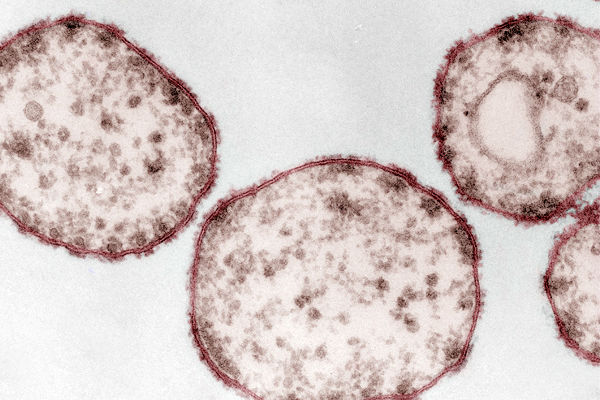 After the Measles outbreak in Brooklyn, we know Measles is a highly contagious disease caused by a virus that is spread through the air by breathing, coughing, or sneezing. Symptoms of measles are rash, high fever, cough, runny nose, and red, watery eyes. Some people who become sick with measles also get an ear infection, diarrhea, or a serious lung infection, such as pneumonia. Although severe cases are rare, measles can cause swelling of the brain and even death. Measles can be especially severe in infants and in people who are malnourished or who have weakened immune systems (such as from HIV infection or cancer or from certain drugs or therapies).
After the Measles outbreak in Brooklyn, we know Measles is a highly contagious disease caused by a virus that is spread through the air by breathing, coughing, or sneezing. Symptoms of measles are rash, high fever, cough, runny nose, and red, watery eyes. Some people who become sick with measles also get an ear infection, diarrhea, or a serious lung infection, such as pneumonia. Although severe cases are rare, measles can cause swelling of the brain and even death. Measles can be especially severe in infants and in people who are malnourished or who have weakened immune systems (such as from HIV infection or cancer or from certain drugs or therapies).
Who is at risk?
Measles remains a common disease in many parts of the world, including Europe, the Middle East, Asia, the Pacific, and Africa. In the United States, most measles cases result from international travel. The disease is brought into the United States by people who get infected in other countries. Measles outbreaks can result when returning travelers spread the disease to people who have not been vaccinated and are not otherwise protected against measles.* Anyone who is not protected against measles is at risk of getting infected when he or she travels internationally.
What can travelers do to prevent measles?
Get the measles vaccine:
- Make sure you are fully vaccinated or otherwise protected against measles.*
Infants 6-11 months of age should have 1 dose of measles vaccine if traveling internationally. - Children in the United States routinely receive measles vaccination at 12-15 months of age.
- Infants vaccinated before 12 months of age should be revaccinated on or after the first birthday with 2 doses, separated by at least 28 days.
- Children 12 months of age or older should have 2 doses, separated by at least 28 days.
- Adolescents and adults who have not had measles or have not been vaccinated should get 2 doses, separated by at least 28 days.
- Two doses of MMR (measles, mumps, and rubella) vaccine are nearly 100% effective at preventing measles.
- The only measles vaccines available in the United States are the measles-mumps–rubella (MMR) and the measles-mumps-rubella-varicella (MMRV) vaccines. MMR has been used safely and effectively since the 1970s. A few people experience mild, temporary, adverse reactions, such as joint pain, from the vaccine, but serious side effects are extremely rare. There is no link between MMR and autism.
- See Vaccine Information Statements (VIS) for more information.
Take steps to prevent illness:
- Wash your hands often.
- If soap and water aren’t available, clean your hands with hand sanitizer (containing at least 60% alcohol).
- Don’t touch your eyes, nose, or mouth. If you need to touch your face, make sure your hands are clean.
- Cover your mouth and nose with a tissue or your sleeve (not your hands) when coughing or sneezing.
- Try to avoid close contact, such as kissing, hugging, or sharing eating utensils or cups, with people who are sick.
If you feel sick and think you may have measles:
- Talk to your doctor or nurse if you feel seriously ill, especially if you have a fever.
- Tell him or her about your travel.
- For more information about medical care abroad, see Getting Health Care Abroad and a list of International Joint Commission-accredited facilities.
- Avoid contact with other people while you are sick.
Traveler Information
Clinician Information
- Measles in CDC Health Information for International Travel -“Yellow Book”
- Measles Webpage for Travelers
- CDC Measles Homepage
- Measles Clinical Information
- Advisory Committee on Immunization Practices (ACIP) Recommendations for MMR vaccine and MMRV vaccine
- Measles Laboratory and Tools
- Measles: Immediate Notifiable Disease (PDF)
- Chapter 7: Measles–Manual for Surveillance of Vaccine-Preventable Diseases-“Pink Book”
- MMR Vaccine Information Statement
* Those who are otherwise protected include people who were born before 1957 and those who have been tested and have confirmed immunity. Talk to a doctor to see if this applies to you.
If you have symptoms or more questions contact Harlem Hospital, 506 Lenox Avenue, New York, NY or call 212.939.1000, https://tinyurl.com/y9oetpxm, harlemhospitalcenter@nychhc.org
Via source.
Become a Harlem Insider!
By submitting this form, you are consenting to receive marketing emails from: . You can revoke your consent to receive emails at any time by using the SafeUnsubscribe® link, found at the bottom of every email. Emails are serviced by Constant Contact








